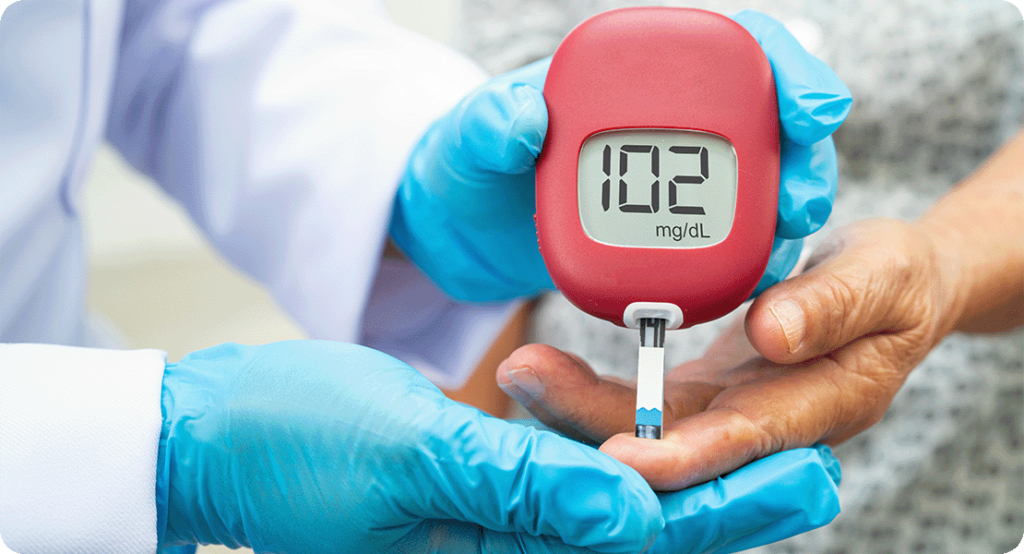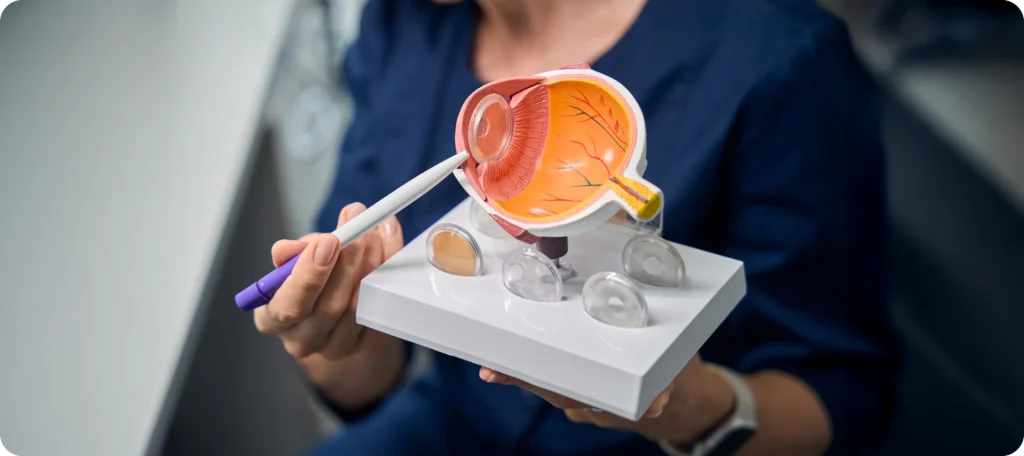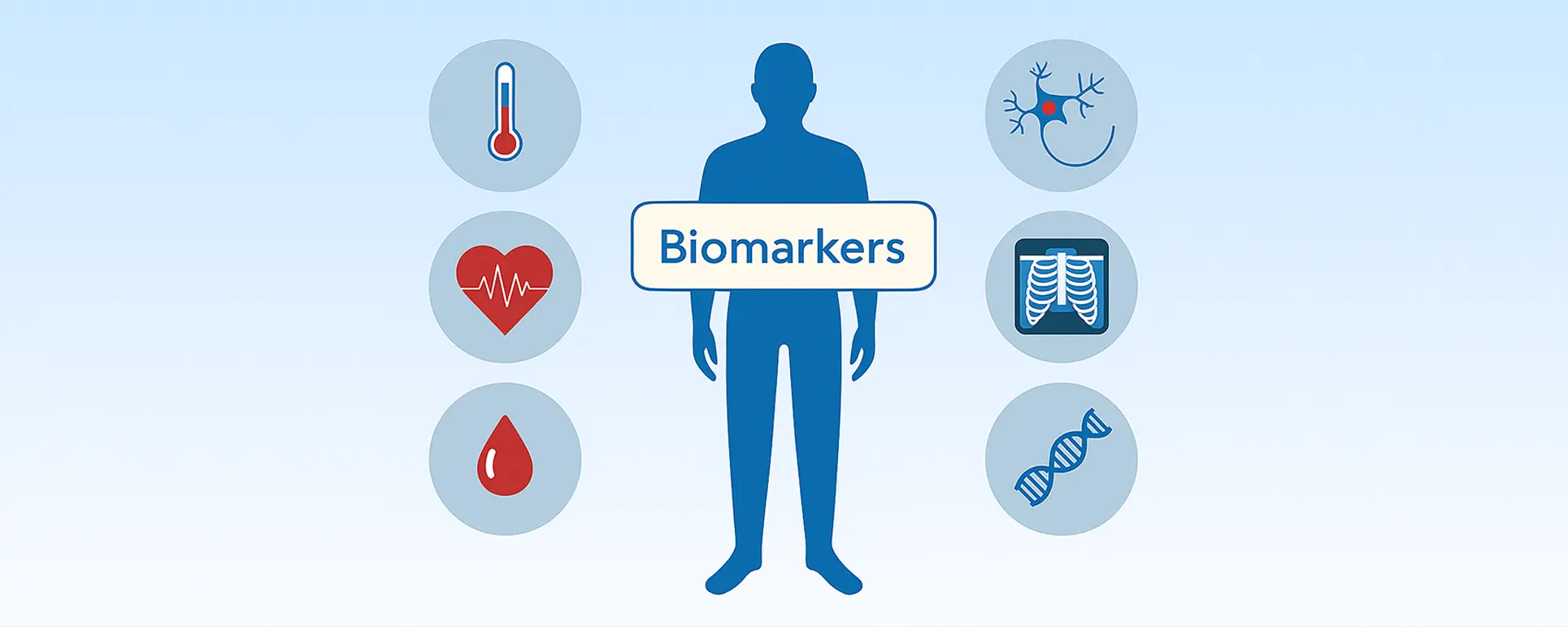When you think about cataracts, blood tests probably aren’t the first thing that comes to mind. After all, cataracts are an issue with the eye’s lens—so why should what’s circulating in your bloodstream matter? Surprisingly, it might matter a lot more than we once believed.
In recent years, scientists have been delving into the links between systemic health and eye disease. Among the more intriguing possibilities is whether blood biomarkers—those measurable substances in your blood—could give us clues about how fast your cataracts are likely to progress or how well you might do during and after surgery. It’s a question that’s attracting increasing attention, and the early signs are fascinating.
Let’s explore what we know so far.
Understanding Cataract Pathophysiology: Why Blood May Matter
At its core, a cataract is a clouding of the lens inside your eye. It typically develops slowly, and in most cases, it’s a part of ageing. But not everyone ages the same way. Some people develop cataracts in their 40s; others maintain clear lenses into their 80s. This variability hints at deeper biological mechanisms—many of which are systemic, not just ocular.
Blood biomarkers are measurable indicators of biological processes happening throughout your body. Think of them as messengers, revealing what’s going on at a molecular level. These can include markers of inflammation (like C-reactive protein or CRP), glucose regulation, oxidative stress levels, lipid profiles, and more.
If cataract development is influenced by chronic inflammation, oxidative stress, or metabolic imbalances—as many studies now suggest—then it makes sense that tracking these biomarkers might offer insights into who is at higher risk, and when surgical intervention might be needed.
C-Reactive Protein (CRP): Is Inflammation Driving Cataract Progression?
CRP is one of the body’s key inflammatory markers. When inflammation rises—whether due to infection, injury, or chronic conditions like diabetes—CRP levels tend to increase. And inflammation, it turns out, might play a big role in cataract formation.
Several studies have found that people with elevated CRP levels have a higher likelihood of developing cataracts earlier. This could be because chronic inflammation leads to increased oxidative stress in the lens, disrupting its proteins and triggering the clouding process.
The link becomes even more compelling when you consider that CRP is elevated in conditions like rheumatoid arthritis, lupus, and even obesity—all of which are also associated with a higher incidence of cataracts.
While we’re not yet at the stage where CRP testing can predict exactly when a cataract will form, it’s certainly looking like a red flag worth monitoring. If you’re someone with high CRP due to an ongoing inflammatory condition, discussing early eye screenings with your optometrist might not be a bad idea.
Blood Glucose and HbA1c: The Diabetic Connection

Diabetes has long been known to accelerate cataract development. The culprit? Persistently high blood glucose levels. When glucose builds up in the eye’s lens, it can cause osmotic changes, lens swelling, and eventually protein denaturation—key components of cataractogenesis.
That’s where blood biomarkers like fasting glucose and HbA1c come in. HbA1c gives a snapshot of your average blood sugar over the past two to three months. Higher levels correlate with more unstable glucose control and, you guessed it, a higher risk of cataract progression.
In fact, cataract surgery is significantly more common in people with poorly controlled diabetes. They also tend to face more surgical risks—ranging from delayed healing to increased inflammation and higher rates of posterior capsule opacification (PCO) after surgery.
So, if you’re diabetic, keeping a close eye on your glucose and HbA1c isn’t just about heart health or kidney function—it could be key to protecting your vision and improving surgical outcomes when the time comes.
Oxidative Stress and Antioxidant Biomarkers: Protecting the Lens
One of the most widely accepted theories about cataract formation involves oxidative stress—the same process that contributes to ageing, cancer, and many degenerative diseases. Inside the eye’s lens, oxidative damage disrupts the structure of crystallin proteins, making them clump together and scatter light.
Here’s where antioxidant biomarkers come in. Blood levels of nutrients like vitamin C, vitamin E, glutathione, and carotenoids (like lutein and zeaxanthin) are crucial indicators of your body’s ability to neutralise harmful free radicals.
Studies have shown that people with lower systemic antioxidant capacity tend to have a higher risk of developing nuclear sclerotic and cortical cataracts. Conversely, those with higher levels of circulating antioxidants often experience slower progression or delayed onset of cataracts altogether.
While there’s still debate over the value of supplements versus dietary sources, the correlation between antioxidant biomarkers and lens health is strong enough that many ophthalmologists now discuss nutrition as a preventive strategy.
Homocysteine Levels: A Marker of Metabolic Disruption?
Homocysteine is an amino acid produced during the metabolism of methionine. Elevated levels have been linked to cardiovascular disease, stroke, and cognitive decline. More recently, high homocysteine has also been associated with cataract development.
The mechanisms aren’t entirely clear, but it’s thought that homocysteine may contribute to oxidative stress or interfere with normal lens cell metabolism. It’s also a marker of poor B-vitamin status, particularly folate, B6, and B12—all nutrients involved in tissue repair and antioxidant defence.
While homocysteine is not currently part of routine eye health screening, it could serve as a useful flag in patients with unexplained early cataract formation or those with additional vascular risk factors.
Lipid Profiles and Their Role in Cataractogenesis
Could high cholesterol and triglycerides be clouding your vision—literally? There’s growing evidence to suggest that dyslipidaemia may play a role in cataract formation. Some studies indicate that abnormal lipid metabolism can disrupt lens membrane integrity and impair nutrient transport within the eye.
Elevated LDL (‘bad’ cholesterol) and reduced HDL (‘good’ cholesterol) have both been linked to increased cataract risk, particularly in patients who are obese or have metabolic syndrome. While the connection isn’t fully understood, it supports the broader idea that systemic metabolic health is tightly interwoven with eye health.
In the future, your lipid panel could do more than predict heart disease—it might also serve as an early indicator that your lens is under threat.
Uric Acid and the Oxidative Balance
Uric acid is a double-edged sword. At low levels, it functions as an antioxidant, but at higher concentrations, it can promote oxidative stress and inflammation. Gout sufferers often have very high uric acid levels, but so do many people with metabolic syndrome or kidney dysfunction.
Some studies have found that elevated uric acid correlates with increased risk of cataracts, particularly cortical and posterior subcapsular types. Again, it’s not conclusive, but it’s one more piece of the systemic health puzzle that may influence your lens clarity.
Albumin and Nutritional Status
Serum albumin is a marker of overall nutritional health and protein status. Low albumin levels often indicate poor diet, chronic illness, or liver dysfunction—all of which can impact healing and tissue maintenance.
In older adults, low serum albumin has been linked to higher risk of both cataract formation and surgical complications. It may also predict poor wound healing or postoperative inflammation, making it a potentially useful pre-surgical screening tool.
Could Biomarkers Help Personalise Cataract Surgery?
This is where things get really interesting. Imagine a future where your bloodwork could not only predict when you might need cataract surgery but also help tailor how it’s done. For example:
- High CRP or systemic inflammation? The surgeon might anticipate more inflammation and pre-treat with steroids.
- Poor glucose control? Extra precautions could be taken to manage intraoperative and postoperative risks.
- Low antioxidant levels? You might be advised to optimise nutrition before surgery for better healing.
We’re not quite there yet, but this idea of precision medicine—where treatment is tailored to your biological profile—is gaining traction in ophthalmology.
Where the Research Stands: Promising, but Early
So far, most of the studies exploring biomarkers and cataract risk are observational. That means they show associations, not causation. But the patterns are consistent enough to merit serious attention.
Larger longitudinal studies and interventional trials are still needed. We also need standardised thresholds—how high is “too high” when it comes to CRP or glucose in the context of cataracts? Until we answer these questions, biomarkers will remain a promising but supplementary tool.
Still, if you’re already having regular blood tests for conditions like diabetes, hypertension, or autoimmune disorders, those results may be more valuable than you think. Sharing them with your eye specialist could help add context to your risk profile and guide earlier intervention.
What You Can Do Now

Even though blood biomarkers aren’t yet used routinely in cataract management, there are still practical steps you can take to reduce your risk:
- Monitor and manage chronic conditions. If you have diabetes, high blood pressure, or high cholesterol, keeping these under control can protect both your eyes and overall health.
- Get your blood tested regularly. Markers like HbA1c, CRP, and lipid profiles offer valuable insights—especially if cataracts run in your family.
- Eat a nutrient-rich diet. Focus on foods high in antioxidants—leafy greens, berries, nuts, and oily fish.
- Don’t ignore early symptoms. Blurry vision, glare at night, or muted colours might mean cataracts are forming. Early detection can make a big difference.
FAQs
- Can a blood test actually tell me if I’ll get cataracts?
Not quite yet—but we’re getting closer. While blood tests can’t give a definite “yes” or “no” about whether you’ll develop cataracts, certain markers are showing strong links. For instance, if you’ve got high levels of inflammation (like CRP), poor glucose control, or low antioxidants, your risk might be higher than average. These tests give clues—not certainties—but in the future, they could form part of a much more personalised cataract risk profile. - Which blood biomarkers are the most relevant to cataracts?
Several are under the spotlight. CRP (C-reactive protein) is a big one because it reflects systemic inflammation. HbA1c and fasting glucose levels are also important, especially for people with diabetes. Oxidative stress markers—such as low vitamin C, vitamin E, or glutathione—are associated with faster cataract development. Even lipid levels, homocysteine, and uric acid are being investigated. It’s not about just one number—it’s the overall picture that counts. - If my blood tests are normal, does that mean I won’t get cataracts?
Unfortunately, no. Cataracts are primarily age-related, and almost everyone will develop them eventually if they live long enough. However, having “normal” blood markers may indicate a slower progression or lower risk of complications during surgery. Think of it like this: good blood results won’t guarantee perfect vision forever, but they’re a positive sign your eyes—and the rest of your body—are on a healthier path. - How could blood biomarkers affect my cataract surgery plan?
If your blood results suggest higher risk—say, uncontrolled diabetes or raised inflammatory markers—your ophthalmologist might take extra precautions. That could mean preoperative anti-inflammatory treatment, tighter glucose monitoring, or adjustments in the surgical technique. Postoperative care may also be adapted to suit your systemic profile. It’s all about improving your outcomes and lowering the chance of complications. - Are antioxidant supplements a good idea to prevent cataracts?
There’s some evidence that higher antioxidant levels—particularly from diet—are linked to slower cataract progression. But the jury’s still out on whether supplements have the same effect. Some studies suggest they help; others show little difference. If you’re eating a colourful, plant-rich diet, you’re probably doing your eyes a favour. Always speak to your GP or ophthalmologist before starting any high-dose supplements. - Do people with diabetes really need earlier cataract surgery?
Often, yes. Diabetes speeds up cataract development because high glucose levels damage the lens. People with diabetes also face more surgical risks—like slower healing and higher inflammation. That’s why regular eye checks and early intervention are so important if you’re diabetic. Managing your blood sugar isn’t just about avoiding nerve or kidney problems—it could help preserve your vision longer, too. - Should I get blood tests done before booking cataract surgery?
If you’ve got existing health conditions—or you’re over 60—it’s worth having a recent set of blood tests. Markers like HbA1c, CRP, lipid panels, and even vitamin levels can give your surgical team a more complete picture of your health. While blood testing isn’t standard for cataract surgery right now, it could help spot risks early and shape a safer, more personalised plan for your eyes.
Final Thoughts: Your Blood May Hold the Clues
Cataracts might seem like a problem confined to your eyes, but they don’t develop in isolation. Your body is one interconnected system, and what’s happening in your bloodstream—whether it’s inflammation, oxidative stress, or glucose imbalances—can all influence how fast cataracts progress and how well you recover after surgery.
We’re still in the early days of applying this knowledge clinically, but the direction is clear: the future of cataract care may involve not just what your surgeon sees through the slit lamp, but what your blood reveals about your systemic health.
If you’re considering private cataract surgery in London or want to know more about your personal risk, don’t hesitate to ask your ophthalmologist how your overall health—and your blood test results—might be shaping your vision future.
References
- Ridker, PM, Cushman, M, Stampfer, MJ, Tracy, RP & Hennekens, CH 1999, ‘High levels of plasma C‑reactive protein and future risk of age‑related cataract’, Physicians’ Health Study, Circulation, vol. 97, no. 5, pp. 425–428. Available at: https://pubmed.ncbi.nlm.nih.gov/9490235/
- Zhou, X, Ni, Z, Shen, C et al. 2024, ‘Association between systemic immune‑inflammation index and cataract risk: the role of CRP and IL‑6’, Frontiers in Medicine, vol. 11, art. 1469200. Available at: https://www.frontiersin.org/articles/10.3389/fmed.2024.1469200/full
- Smith, W, Wang, J, Lee, K et al. 2023, ‘Research progress on the correlation between cataract occurrence and nutritional antioxidant biomarkers’, PMC, published 11 months ago. Available at: https://www.ncbi.nlm.nih.gov/pmc/articles/PMC11249779/
- Jacques, PF, Taylor, A, Hankinson, SE et al. 2001, ‘Vitamin and carotenoid intake and risk of age‑related cataract: Am J Clin Nutr’, American Journal of Clinical Nutrition, vol. 73, pp. 1375–1382. Available via Vitamin C entry: https://en.wikipedia.org/wiki/Vitamin_C
- Truscott, RJW & Augusteyn, RC 2022, ‘Tocopherol and age‑related cataract risk: meta‑analysis of serum levels’, Public Health Nutrition, Oct 2015 meta-analysis summarized via Tocopherol entry. Available at: https://en.wikipedia.org/wiki/Tocopherol

